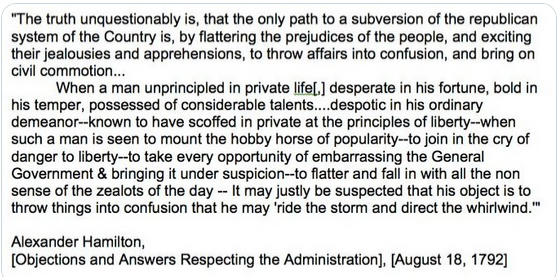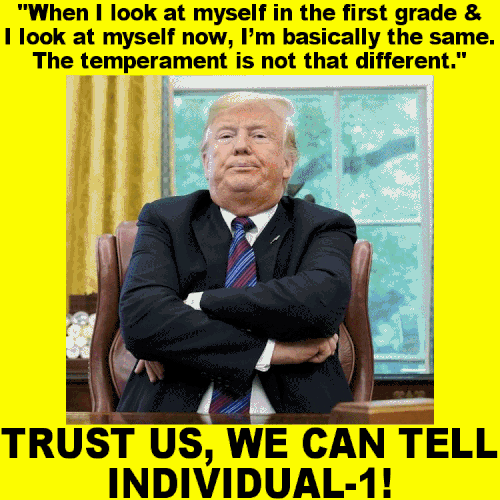If you’ve spent any time around the Federalist Society — the hugely influential conservative legal society that plays an outsized role in choosing President Trump’s judicial nominees — then you’ve probably noticed their obsession with a singular issue.
Beginning in the latter half of the Obama administration, Federalist Society gatherings grew increasingly fixated on diminishing the power of federal agencies to regulate businesses and the public — an agenda that would severely weaken seminal laws such as the Clean Air Act and the Clean Water Act.
On Monday, Justice Brett Kavanaugh signaled that he is on board with this agenda.
Kavanaugh’s opinion is not especially surprising. The Trump appointee to the Supreme Court keynoted the Federalist Society’s annual banquet earlier this month and he spent much of the Obama years frustrating the Environmental Protection Agency (EPA) and other federal agencies. But his opinion is nonetheless significant because it shows that there are almost certainly five votes on the Supreme Court to slash agencies’ regulatory power.
Last June, in Gundy v. United States , all four of Kavanaugh’s Republican colleagues indicated they want to limit agency regulation. Kavanaugh, however, did not participate in the Gundy case because he was not a member of the Court when it was argued.
On Monday, the Supreme Court announced it would not hear Paul v. United States , a case asking whether a federal law delegates too much authority to the Justice Department to determine whether certain sex offenders need to register with the government. That’s the very same issue that the Supreme Court considered in Gundy .
Kavanaugh , however, took the unusual step of releasing an opinion explaining why he thought the Court should not hear Paul . His brief opinion praises Justice Neil Gorsuch’s effort to toss out decades of settled law regarding the power of agencies to regulate. Indeed, if anything, Kavanaugh’s Paul opinion suggests that he would restrict federal power even more than Gorsuch would.
It’s impossible to exaggerate the importance of this issue. Countless federal laws, from the Clean Air Act to the Affordable Care Act, lay out a broad federal policy and delegate to an agency the power to implement the details of that policy. Under Kavanaugh’s approach, many of these laws are unconstitutional, as are numerous existing regulations governing polluters, health providers, and employers.
A revolution against the regulatory state looms on the horizon, and the biggest losers are likely to be Democrats who hope to regain the White House in 2020.
The Nondelegation Doctrine, briefly explained
Both Gundy and Paul concern a largely defunct legal doctrine known as “nondelegation.”
Broadly speaking, Congress can make laws in two ways. The most straightforward way is it can simply command a person or industry to conduct their business in a certain way. If Congress wants to restrict pollution, for example, it can pass a law commanding power plants to use a particular technology that reduces emissions.
The problem with this approach, however, is that acts of Congress are difficult to change. If Congress had enacted a law in the 1970s requiring power plants to use the best emissions reduction technology that existed back then, it could have locked those plants into using technology that is vastly inferior to the methods of reducing emissions that exist today. At the very least, Congress would have struggled to keep abreast of new technology and to update the law as better methods of reducing emissions were invented.
Representative Ed Whitfield (R-KY) speaks at the House Triangle during the Coal Caucus’ news conference on the EPA’s proposed greenhouse gas standards for new power plants on September 26, 2013.
Bill Clark/CQ Roll Call
So that’s not what Congress did. Instead, the Clean Air Act provides that certain power plants must use “the best system of emission reduction” that currently exists, while also taking into account factors such as cost. Congress also tasked the EPA with studying what technology is available to reduce emissions and with creating binding regulations instructing energy companies on which systems they must use to reduce emissions.
As the technology evolves, the EPA may update its regulations, so that power plants in 2019 use the best system of emission reduction that exists in 2019 — not the one that existed in the 1970s.
In this way, federal policy can be both democratic and dynamic. It is democratic because the goals of federal policy are ultimately set by the people’s representatives in Congress. But it is also dynamic because Congress doesn’t have to pass a new law every time a new innovation arrives on the scene.
“Nondelegation” is the idea that the Constitution imposes limits — potentially very strict limits — on Congress’s power to give regulatory authority to federal agencies.
Under current law, “a statutory delegation is constitutional as long as Congress ‘lay[s] down by legislative act an intelligible principle to which the person or body authorized to [exercise the delegated authority] is directed to conform.’” That is, Congress has broad authority to delegate power to federal agencies so long as it explains with sufficient clarity what the agency is supposed to accomplish with its power.
In Gundy , however, Gorsuch sharply criticized this long-standing rule and called for the Court to revive the Nondelegation Doctrine.
In that opinion, Gorsuch suggested that current law risks giving agencies “unbounded policy choices.” His explanation of what new limits he would impose on federal agencies is vague and it’s hard to find a clear legal rule in the opinion. Nevertheless, Gorsuch writes that a federal law permitting agencies to regulate must be “‘sufficiently definite and precise to enable Congress, the courts, and the public to ascertain’ whether Congress’s guidance has been followed.”
As a practical matter, when the Supreme Court hands down such a vague and open-ended legal standard, it is effectively shifting power to the judiciary. What does it mean for a statute to be “sufficiently definite and precise” that people can “ascertain whether Congress’s guidance has been followed”? I honestly have no idea. But, as a practical matter, the answer to this question will be decided by the Supreme Court’s Republican majority whenever it is confronted with an agency regulation.
Gorsuch, in other words, would give the Republican-controlled Supreme Court a veto power over all federal regulations. That prospect should chill each of the Democratic presidential candidates to the bone. If any of them prevail, their administration would have to seek a permission slip from the Court if it wants to regulate, if Gorsuch’s view holds sway.
Now, Gorsuch’s Gundy opinion was actually a dissent — but only for reasons that are unlikely to repeat in a future case. As mentioned above, Kavanaugh did not participate in the case. And Justice Samuel Alito wrote an unusual opinion where he said that “if a majority of this Court were willing to reconsider the approach we have taken for the past 84 years, I would support that effort.” Nevertheless, Alito voted to keep existing law in place until such a majority sits together on the same case.
It’s unclear why Alito did so, but Alito is a former prosecutor with very pro-prosecution instincts, so he may not have wanted to side with a sex offender in a case where he lacked the votes to move legal doctrine to the right.
The two remaining Republican justices, Chief Justice John Roberts and Justice Clarence Thomas, both voted with Gorsuch. So that’s four votes to revive the Nondelegation Doctrine.
Kavanaugh’s solo opinion in Paul makes five.
The issue in Paul is very similar to the issue in Gundy , so the Supreme Court ultimately decided not to hear the Paul case — most likely because it wanted to avoid the spectacle of reaching two opposite conclusions on the same legal question in just two years. Nevertheless, Kavanaugh used this occasion to write that Gorsuch’s “scholarly analysis of the Constitution’s nondelegation doctrine in his Gundy dissent may warrant further consideration in future cases.”
That’s the sort of language justices often use to signal that they would like to see a past dissent become a future majority opinion.
Kavanaugh reads Gorsuch’s opinion to state that Congress may not allow an “agency to exercise regulatory authority over a major policy question of great economic and political importance.” Again, this standard is vague and would effectively give the Supreme Court broad authority to veto regulations that its Republican majority dislikes. Kavanaugh’s Paul opinion also signals that he would shrink agency power to only include “less-major or fill-up-the-details decisions.”
Nondelegation would be a disaster for Democrats and a big win for Republicans
In theory, the Nondelegation Doctrine could be applied in a neutral way to administrations controlled by either party. In practice, it would be a boon to Republicans and an albatross around the neck of Democrats.
One reason why is that Democrats tend to support robust regulation while Republicans do not. An anti-regulatory doctrine inherently favors conservatives.
A second reason is that the Supreme Court is controlled by Republicans. So, even if it is possible for the Nondelegation Doctrine to be applied in a neutral way, this Supreme Court seems unlikely to do so.
Meanwhile, the biggest problem facing Democrats for the foreseeable future is Senate malapportionment. Currently, the Republican Senate “majority” represents 15 million fewer people than the Democratic “minority,” and that’s a significant Republican gain over the previous Senate. In the Senate that confirmed Gorsuch and Kavanaugh, the Republican “majority” represented almost 40 million fewer people than the Democratic “minority.”
Similarly, when the Republican Senate “majority” refused to give a hearing or a confirmation vote to Obama Supreme Court nominee Merrick Garland, Democratic senators represented about 20 million more people than Republicans.
Senator Chuck Schumer (D-NY) walks with Supreme Court nominee Judge Merrick Garland before a meeting on Capitol Hill on March 22, 2016.
Brendan Smialowski/AFP via Getty Images
Republicans, in other words, owe their Supreme Court majority to the fact that the Senate, which gives each person in Wyoming about 66 times more representation than residents of California, is malapportioned to strongly favor the GOP. That same thumb on the scale in favor of Republicans, moreover, also gives Republicans an enormous advantage in the legislative process.
Republican presidents are likely to serve alongside Republican Senates, and thus they will be able to enact a legislative agenda unless Democrats control the House. Democratic presidents, by contrast, must win by commanding margins to even have a shot at a Senate majority. And, even then, they must overcome the Senate’s filibuster rules — which allow just 41 Republican senators to block any regulatory legislation — in order to pass a bill through the Senate.
Thus, if a Republican Supreme Court disables major legislation like the Clean Air Act, that law is likely to remain disabled for the foreseeable future.
That is why the Nondelegation Doctrine could be a recipe for one-party rule. Republican justices can disable regulations at their leisure — or even strike down the very laws permitting such regulation. And Democrats are unlikely to ever win a Senate majority large enough to do anything about it.

:no_upscale()/cdn.vox-cdn.com/uploads/chorus_asset/file/19407773/GettyImages_182004412.jpg)
:no_upscale()/cdn.vox-cdn.com/uploads/chorus_asset/file/19407698/GettyImages_516940266.jpg)

